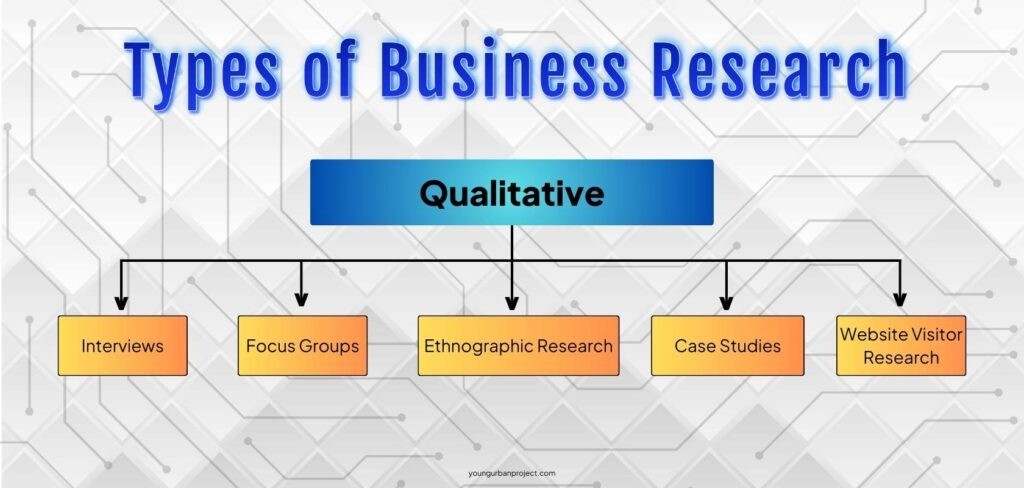
When Business Meets Inquiry
Imagine this.
You’re sitting in a boardroom, leading a strategic discussion for your company’s next big move. Numbers are flying across the screen, opinions are strong, and the stakes are high. Everyone’s talking, but nobody’s quite sure what direction will actually work.
Now imagine you’re the one who speaks up—not with gut feelings, but with evidence. Real data. Thoughtful analysis. Research-backed insights. And just like that, the room leans in.
That’s the power of research.
And that’s exactly what a Doctor of Business Administration (DBA) program gives you. Unlike an MBA, which sharpens your management skills, a DBA transforms the way you think—strategically, critically, and analytically. It helps you question assumptions, challenge existing models, and build business strategies rooted in evidence, not guesswork.
This blog dives deep into how research within a DBA program isn’t just academic theory—it’s a real-world tool that reshapes how leaders think, act, and drive results.
Let’s explore how.
Why Research is the Heartbeat of a DBA Program
At its core, a DBA isn’t just a degree—it’s a mindset.

DBA students don’t just learn what works; they ask why it works. They explore what could work better, and most importantly, they look for how to prove it.
While traditional business degrees focus on case studies and frameworks, a DBA immerses professionals in research methodologies—giving them the tools to examine real-time business challenges and generate solutions grounded in data.
Take, for example, Priya, a mid-level executive in a logistics company in Chicago. While pursuing her DBA, she conducted applied research on how AI can optimize supply chain costs for mid-sized firms. Her research didn’t sit on a library shelf—it was adopted by her company, saving them over $2 million annually.
That’s what sets a DBA apart.
Instead of memorizing models, you build them. Instead of following strategies, you test and evolve them. Every project, every paper, every dissertation is designed to solve actual business problems—ones you’re either facing now or will face in the future.
From Data to Direction: How Research Drives Strategy
Think of the business world like a fast-moving river. Trends shift overnight. Customer behavior changes with a tweet. Technology evolves faster than most companies can adapt. So how do leaders stay ahead?
With research.
Strategic decisions—like entering a new market, pivoting product lines, or restructuring operations—can’t rely on assumptions anymore. They need insight. Evidence. Clarity. And that’s exactly what DBA research delivers.
Let’s take another story—this one from David, a senior manager at a fintech startup in Austin. His company was growing, but customer churn was quietly bleeding revenue. Through his DBA research, David designed a data-backed framework to identify at-risk users, analyze behavioral patterns, and predict churn before it happened. His findings not only helped retain thousands of users but became the backbone of their customer strategy.
Here’s the key:
Research in a DBA program isn’t just about writing a dissertation. It’s about solving problems in real time—using tools like data analytics, qualitative interviews, case study evaluations, and financial modeling to support smarter, sharper strategies.
It turns the phrase “let’s try this” into “let’s test this—and here’s the evidence behind it.”
Bridging the Gap Between Boardrooms and Classrooms
One of the biggest misconceptions about doctoral programs is that they’re too “academic”—detached from the real world. But a DBA is built differently.
DBA candidates don’t isolate themselves in ivory towers. They’re businesspeople—executives, entrepreneurs, consultants—who bring their day-to-day challenges into the research arena and walk out with tangible, actionable solutions.
This creates a powerful two-way street:
- Business challenges shape the research
- Research results reshape the business
Let’s say you’re a retail executive noticing declining foot traffic across stores. Instead of outsourcing the problem, you can research the shift: Is it seasonal? Regional? Experience-driven? Based on demographic preferences? Your DBA research could uncover patterns missed by standard analytics tools—and your strategic plan could shift accordingly.
This blend of academic rigor and business practicality is what makes DBA research so powerful. It’s the bridge between the what and the why, between theory and execution.
The Toolbox: Research Methods That Shape Business Innovation

In a DBA program, your research isn’t guesswork—it’s guided by a
well-stocked toolkit of methods and models that help you dive deep into business challenges.
Think of it like this: A good strategist sees a problem. A DBA scholar dissects it.
Whether you’re testing a new pricing strategy, exploring customer experience pain points, or forecasting market demand, your methods matter. And in a DBA, you’re trained to pick the right tool for the right question.
Here are some of the powerful research tools you’ll learn to use:
- Quantitative Analysis – You’ll crunch numbers, analyze trends, run regressions, and draw conclusions from hard It’s about turning spreadsheets into strategic gold.
- Qualitative Research – Sometimes, the richest insights come from people, not platforms. Interviews, focus groups, and ethnographic studies help uncover the “why” behind the data.
- Mixed Methods – The perfect combo when your questions need both stats and A balanced approach that many DBA learners adopt for real-world complexity.
- Case Study Research – Dive deep into real organizations, real outcomes, and real This is where business theory meets business life.
- Action Research – You become both the researcher and the change agent—testing, adjusting, and implementing strategy in real-time.
Let’s bring this to life.
Sandra, a tech executive in Seattle, used mixed methods in her DBA to study employee retention in remote teams. Her qualitative interviews revealed that it wasn’t just workload—it was lack of career visibility.
Backed by surveys and HR data, her company introduced an internal mobility program that cut attrition by 40%.
That’s the power of a DBA research toolkit—it doesn’t just explain the problem. It solves it, with precision and purpose.
From Researcher to Industry Leader: The Career Impact of a DBA
Let’s be honest—most professionals don’t pursue a DBA just to add “Dr.” to their email signature.

They do it to lead better. Think sharper. Build legacies.
And that’s exactly what research in a DBA program empowers you to do.
So, how does it actually elevate your career?
1. You Become the Strategy Expert Everyone Trusts
Once you’ve spent three years dissecting complex business problems, presenting research-backed solutions, and applying those insights in
real-life settings—people listen. Whether you’re in a Fortune 500 company or running your own firm, your ability to create data-driven strategies positions you as the go-to leader in high-stakes decision-making.
2. You Break Through to Executive and Board-Level Roles
A well-executed research project can spark innovation, transform operations, or even launch new business models. These outcomes are exactly what boards, CEOs, and investors want. Many DBA graduates move into C-suite roles—not just because of the degree, but because they’ve already demonstrated the thinking and results expected at that level.
3. You Add “Thought Leader” to Your Resume
Publishing research. Presenting at conferences. Being quoted in industry reports. These aren’t just academic checkboxes—they’re powerful branding tools. As a DBA graduate, your research has the potential to influence your entire industry, giving you authority far beyond your job title.
4. You Future-Proof Your Career
Industries evolve. Job roles change. But the ability to research, analyze, and solve complex problems? That never goes out of style. Your DBA research experience becomes your strategic compass, no matter where your path leads.
Real-life snapshot:
Rajiv, a former operations head at a U.S. manufacturing firm, used his DBA to research sustainable sourcing strategies. His findings helped the company reduce waste by 30% and earned him a seat at the global sustainability council. Today, he advises other companies on green logistics—and his research journey became his personal brand.
So, if you’re thinking the DBA is only for academics—think again.
It’s for leaders. For change-makers. For professionals who want to shape strategy, not just follow it.
Growthskale’s Approach: Research That Doesn’t Just Sit on a Shelf
At Growthskale, we don’t believe in research for the sake of research.
We believe in research that builds businesses, transforms leaders, and creates real impact.
That’s why our DBA program is designed for working professionals who want more than just a credential—they want a competitive advantage. Our learners don’t just study theories; they challenge them. They don’t just solve case studies; they tackle live problems from their own organizations or industries.
Here’s how we make it happen:
Real-World Integration
From day one, learners are encouraged to bring their current business challenges into the classroom. Whether it’s declining customer loyalty, supply chain inefficiencies, or scaling hurdles—our faculty helps turn those issues into research projects that drive strategic transformation.
Mentorship That Goes Beyond Academics
Every learner is matched with a mentor who’s walked the talk—senior executives, domain experts, or PhDs with deep business experience. These aren’t just guides for your dissertation—they’re coaches for your career.
Research With ROI
We don’t want your final thesis to collect dust. We want it to turn into a published paper, a boardroom pitch, a new consulting offer, or even a startup. And our structured support—from proposal to publication—helps you do exactly that.
Community of Strategic Thinkers
At Growthskale, you’ll be learning alongside professionals from finance, healthcare, tech, logistics, and beyond. The result? A vibrant,
cross-industry think tank that brings diverse insights to your research and sharpens your business perspective.
Imagine this:
You’re working full-time in a leadership role, and simultaneously crafting a research project that reduces costs, boosts revenue, or even reshapes customer experience in your company. That’s what Growthskale empowers you to do.
It’s not just education. It’s transformation.
7. Looking Ahead: The Future of Research-Driven Strategy
In a world where data is everywhere but clarity is rare, research has become the sharpest strategic weapon a leader can carry.
AI is rewriting how we work. Customer expectations are evolving overnight. Global disruptions are the new normal. And in the middle of all this change, the ability to ask the right questions, gather insights, and act on evidence isn’t just helpful—it’s mission-critical.
That’s why the future belongs to research-driven leaders. We’re already seeing it:
- Startups using behavioral research to redesign user
- Enterprises leveraging predictive analytics to stay ahead of market
- Nonprofits applying ethnographic studies to deepen community
And DBA graduates? They’re the ones leading that charge—not just reacting to change, but engineering it.
Research isn’t just about looking back at what happened. It’s about predicting what’s next. And if you’re a professional looking to lead in this fast-changing landscape, mastering the science of strategy through research is no longer optional.
It’s your edge.
Ready to Lead with Insight?
The DBA isn’t just another degree—it’s a transformational journey.
It challenges you to rethink what you know. It equips you to solve problems no one else has cracked. And most importantly, it teaches you to back every bold move with clarity and conviction.
At Growthskale, we don’t just prepare you to earn a doctorate—we prepare you to become a strategic force in your industry. Through rigorous research, expert mentorship, and real-world integration, our DBA program helps you step into a new kind of leadership—one grounded in knowledge, powered by data, and driven by vision.
So, if you’re ready to elevate your thinking, amplify your impact, and design the future of business strategy…
 Femia Fermin
Femia Fermin

